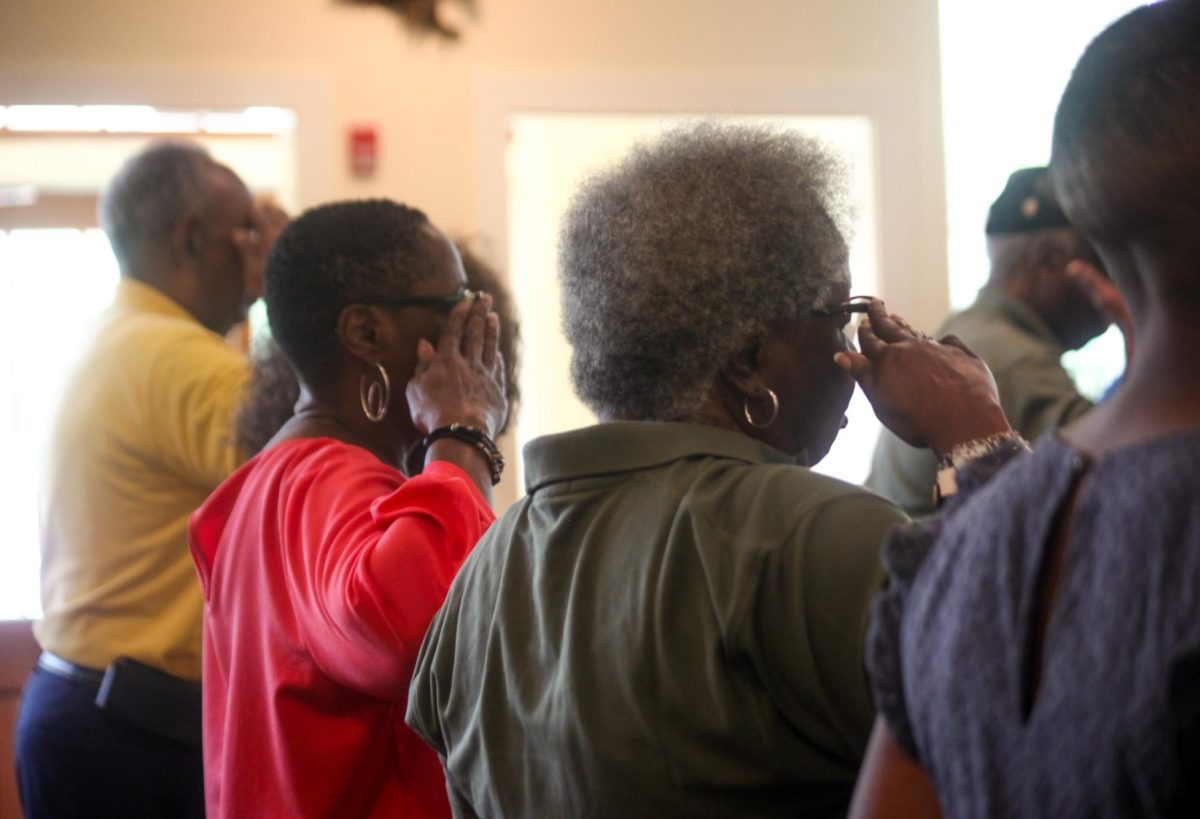In South Africa, like many countries including the United States, prostitution carries a controversial stigma and is illegal. Sex workers are demoted in the community and a large portion of them face poverty, discrimination and social abuse.
According to the Sexual Violence Research Initiative, prostitution in South Africa is shunned and has been limitedly researched. Being an advocate against sex work in any country, I see prostitution as a form of work, not forced rape, since women put themselves into these situations for the incentive of gaining financial support, although in very inadequate amounts.
Not only does sex work violate human morals, privacy and ethics, but also goes against numerous religious beliefs, laws and customs that only further corrupt a society and cripple its values. Some advocates that view prostitution as a workplace or lifestyle that is meant to financially support families and individuals believe it needs policy reforms and laws to protect sex workers and to provide better work conditions.
These advocates have achieved at least a place for prostitutes to practice their works in safety with the “sex box” offered in Switzerland, according to USA Today, where prostitutes are provided a shelter away from the exploitation of bosses and pimps.
The need to better understand prostitution in South Africa has been thrown into sharp relief by the work of the South African Law Reform Commission, which reviewed legislation on sex work and prostitution for some years, and is under pressure to make fixed sanctions.
Will prostitution ever be decriminalized in South Africa?
The women’s league of the governing African National Congress party is attempting to make it legal and it has claimed a victory which takes the country one step further towards legal soliciting as stated by the BBC’s Kate Forbes in Johannesburg.
At The United Nations 4th World Conference on Women Beijing 1995, it was said that, “Every person should be entitled to participate in, contribute to and enjoy cultural, economic, political and social development.”
Clearly, the lack of “participation” has greatly contributed to the enjoyment of such rights and the likelihood of prostitution, to say the least. Women are denied education in countries like Syria and Pakistan or are unable to attain an education for many reasons. This causes major economic and educational inequalities.
Women are deprived on a social level because they are not given opportunities to partake and voice their thoughts in societies where their opinions are devalued. Why not, instead of legalizing prostitution, improve and make accessible opportunities of education for these women who carry potential to improve the world of education and work?
According to the Havoscope Global Black Market Information, there are roughly 14 million prostitutes in the world.
“You can’t make a complaint because you’ll be arrested,” a 32-year-old prostitute named Lilly in Johannesburg told the BBC. “I know of women caught on the streets by police who have been the victims of horrific humiliation,” she said. “Like spraying pepper spray on a woman’s private parts, or forcing her to stand naked while they take photos. You can’t make a complaint because you’ll be arrested and prosecuted for being a sex worker. You have no rights.“
A conservative society and unsympathetic police force leave women and men in the sex industry with few rights when things go wrong. Although it is an underground and covert activity, prostitution is common in every corner of the world including Saudi Arabia, China, Egypt, Kenya and many more. According to Maps of the World, 2010 reports suggest that prostitution is legal in 77 countries of the world and has been declared a crime in about 109 countries.
Prostitution is considered to be the oldest method of making a living known to mankind. Prostitution is neither a legal nor legitimate profession, and is fortunately not considered to be in many countries. Prostitution has too many socio-economic and legal issues, but not only that; prostitution also puts sex workers in peril. The negative social stigma and risk of abuse are far from the issues sex workers face.
With prostitution comes an elevated risk of exposure to street crimes, as well as violence characterized by bodily harm, health hazards and mental trauma. Health hazards come into play when the spread of sexually transmitted diseases such as HIV and AIDS infect prostitutes, their clients and everyone else in sexual contact with them. These are major reasons why necessary restrictions must be made in the sex industry, not forward movements to encourage illegal sex.
The working conditions of sex workers around the world exploit them to a number of risks such as emotional and physical abuse. Human rights still apply to prostitutes. Illegalizing prostitution and preventing its legalization in South Africa and other countries pushing toward making it legal would save lives. A number of countries do not criminalize prostitution itself but penalize such sexual activities such as the running of brothels. Social and individual rights must be protected and to ensure this, political involvements are necessary in the sensitive topic.
I rest my case in saying that prostitution should not be made legal in South Africa mainly for the reason of it already being an impoverished and deteriorated country, for allowing sex work would only worsen the country’s situation and status. The moral fabric of society is rotting. South Africa is majorly conservative Christian, and so the argument over supply and demand economics of sex workers is overthrown by the religious debate.
Millions of wives already have serious concerns and worries about their husbands cheating and making this legal would not only be wrong but also immoral, basically making cheating legal, which in 23 states, adultery is illegal. If a woman and a man desire to be immoral then both should suffer the consequences of the law if caught.
By legalizing prostitution, you are agreeing to use women and girls as merchandise, not as human beings with thoughts, feelings and potential. Legalizing prostitution will increase people’s considerations of a dangerous back-up plan and decreases the incentive for post secondary education and any real employment opportunities. Prostitution promotes unsafe sex and female inequality.
Most prostitutes are teen runaways or misguided young women with rough childhood pasts of drugs, alcohol, neglect and lack of education. Although prostitutes sell their bodies for sex it doesn’t mean they are always willing. Most cases from former prostitutes said they have to put their minds somewhere else to think they’re not having sex. They also have the risk of being raped and beaten by any person purchasing them. Legalizing prostitution will not end the violence of prostitutes and yes, it will still go on underground as it is now if it is not legalized.
Second, prostitution being illegal costs taxpayers millions a year just to incarcerate them. Being legal however, does not change the cost of prostitution since every prostitute would need to get checked for STDs once every month. Numerous children are born out of the sex workplace, regardless of whether contraception was used correctly or not.
How will their birth be explained to them? Will prostitution become the social norm rather than a sensitive social stigma? Is legalizing prostitution the right step for our next generation?
Many of those forced into soliciting are desperate for cash because of financial conditions, needing to support family members or raise children. With prostitution needing no educational background, lessons or intelligence, the work only requires a physical body.
The ANC Women’s League has just won a victory to encourage legalization of prostitutes’ work in South Africa. The idea of decriminalization was embraced at the recent ANC’s policy conference, which sets it on track for approval when the party meets again to decide on national policy in December.
Hlengiwe Mkhize, the group’s treasurer and South Africa’s deputy minister of economic development said money spent harassing prostitutes could be better spent retraining or re-orienting them. South Africa is yet to be a nation of equality for men and women and for rightful treatment of its women.
Despite the advocates and social movements to create equality a reality for women, South Africa is far behind the United States in terms of equal rights for women.
In South Africa and other impoverished, uneducated societies, women earn less than men, are offered far fewer opportunities and bear much rape and assault. Decriminalizing such a criminal act of immoral sex and its sale and purchase will impair South Africa and its surrounding countries’ rank of women.



























